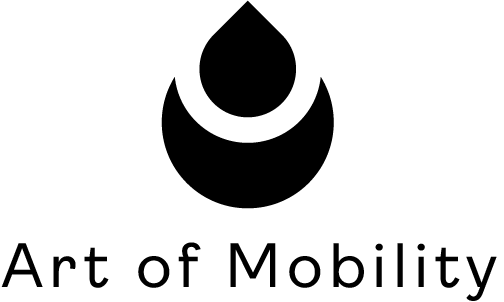
Temporomandibular Joint Disorder (TMJ) represents a challenging health issue affecting many individuals, causing discomfort and hindering daily activities. This guide discusses physiotherapy treatments for TMJ, offering insights and practical solutions for those seeking relief in Mississauga. By understanding the causes, exploring effective treatments, and adopting preventive measures, you can significantly improve your jaw health and overall well-being.
Understanding the Causes of Temporomandibular Joint Disorder
TMJ is a multifaceted condition influenced by various factors, each contributing to the complexity of its management. The most common causes include:
- Bruxism: The involuntary grinding or clenching of teeth, often triggered by stress or dental misalignment.
- Trauma: Injuries to the jaw or facial area, including impacts and whiplash, can significantly affect the TMJ.
- Arthritis: Both osteoarthritis and rheumatoid arthritis can deteriorate the joint, leading to TMJ issues.
- Poor Posture: Chronic bad posture can strain the jaw muscles and alter the normal functioning of the joint.
- Stress: High levels of stress can intensify muscle tension around the jaw, exacerbating TMJ symptoms.
Recognizing and addressing these underlying causes is crucial for effective TMJ management.
The Role of Physiotherapy in TMJ Management
Physiotherapy offers an effective treatment strategy for those grappling with TMJ, aiming to enhance jaw function, alleviate pain, and tackle the root causes of the disorder. Key physiotherapy interventions include:
- Manual Therapy: Mobilizations and manipulations by skilled physiotherapists can increase joint mobility and relax tense muscles.
- Targeted Exercises: Customized exercises strengthen specific muscles, improve jaw movement, and rectify postural anomalies.
- Therapeutic Modalities: Techniques like acupuncture may offer pain and inflammation relief.
- Educational Support: Understanding jaw mechanics and incorporating relaxation and lifestyle changes are pivotal in symptom management.
A personalized approach, crafted by an experienced physiotherapist, is vital for addressing the unique needs and goals of each individual.
Massage Therapy: An Effective Complement to TMJ Treatment
Incorporating massage therapy into TMJ management can provide significant benefits, focusing on muscle relaxation and tension relief. The most effective techniques include:
- Myofascial Release: This technique applies gentle pressure to constricted areas, enhancing tissue mobility and reducing discomfort.
- Trigger Point Therapy: Focused pressure on specific jaw muscle trigger points helps relieve pain and improve function.
- Deep Tissue Massage: This method reaches deeper muscle layers, breaking up adhesions and aiding recovery.
- Effleurage and Petrissage: These gentle techniques promote circulation and relaxation in the jaw area, contributing to overall symptom reduction.
Integrating massage therapy with physiotherapy can help maximize the potential for recovery and pain relief.
Navigating Daily Life with TMJ: Activities to Avoid
When suffering from TMJ, being aware of and modifying certain behaviours can make a significant difference in managing symptoms and facilitating recovery. Essential activities and habits to reconsider include:
- Chewing Gum: Frequent chewing can overwork the jaw muscles, leading to increased TMJ pain.
- Consuming Hard or Chewy Foods: Avoid foods that are challenging to chew or that place undue pressure on the jaw, like tough meats or sticky candies.
- Wide Yawning: Be mindful of not opening the mouth too wide or too forcefully to prevent straining the TMJ.
- Teeth Clenching or Grinding: Making a conscious effort to stop these actions can decrease muscle tension in the jaw area.
- Maintaining Proper Posture: Good posture, especially when sitting or using devices such as smartphones, can lessen the strain on the neck and jaw muscles, alleviating associated TMJ symptoms.
Implementing these changes can significantly contribute to symptom management and the overall recovery process for those with TMJ.
Understanding the Treatment Timeline for TMJ
The journey to relief from TMJ varies greatly among individuals, influenced by the severity of the condition, personal health factors, and the effectiveness of the treatment plan. Typically, improvements may be noticed within a few weeks to a few months with conservative care. However, more persistent or severe cases may necessitate a longer period to experience substantial relief.
The key to a quicker recovery lies in closely following prescribed treatments, including physiotherapy routines, lifestyle adjustments, and stress management strategies. Regular consultation with healthcare providers is crucial to track progress and fine-tune treatments as necessary, ensuring the best possible outcome for those affected by TMJ.
Optimal Sleep Practices for TMJ
Sleep plays a pivotal role in the recovery from TMJ, with certain practices enhancing the quality of rest and minimizing discomfort:
- Use of a Supportive Pillow: A pillow that supports proper head and neck alignment can lessen jaw strain. A contoured or cervical pillow may offer additional benefits.
- Avoid Stomach Sleeping: This position can unnaturally twist the head and neck, placing extra pressure on the TMJ. Opt for sleeping on the back or side instead.
- Wearing a Mouthguard: For those who grind or clench their teeth at night, a custom-fitted mouthguard can protect the teeth and reduce jaw tension.
- Relaxation Techniques Before Bed: Engaging in relaxation exercises can help decrease stress and muscle tension in the jaw, contributing to a better night’s sleep.
- Maintaining Jaw Relaxation: Aim to keep the jaw relaxed during sleep, with the tongue resting on the roof of the mouth and the teeth slightly apart to avoid tension.
By integrating these practices into your nighttime routine, you can significantly enhance your sleep quality and provide your TMJ with the restful environment it needs to heal.
End Jaw Pain Today
Physiotherapy offers a holistic and effective approach to managing TMJ disorders. By understanding the root causes of this condition, engaging in tailored physiotherapy treatments, and supplementing with appropriate lifestyle adjustments, you can significantly improve your quality of life. At Art of Mobility in Mississauga, we’re committed to providing you with the support, expertise, and personalized care needed to effectively treat TMJ. Contact us today to begin your journey to relief and recovery.
